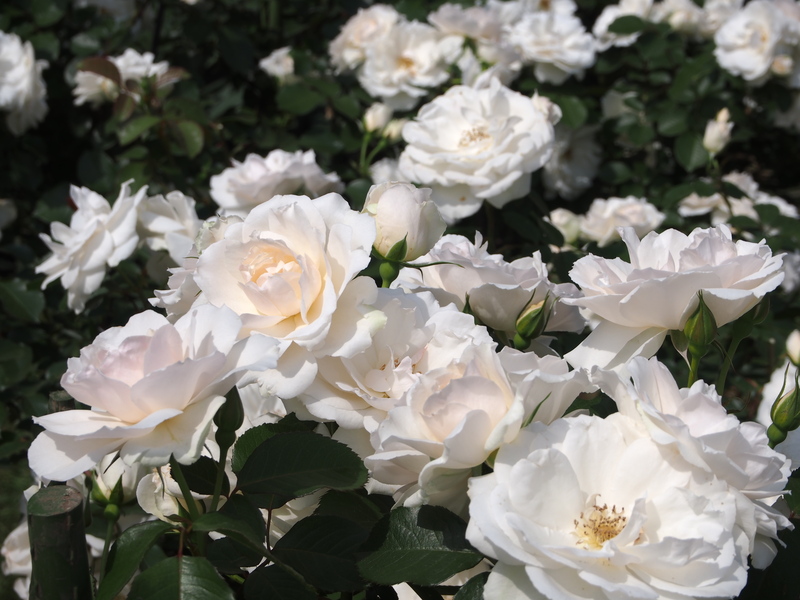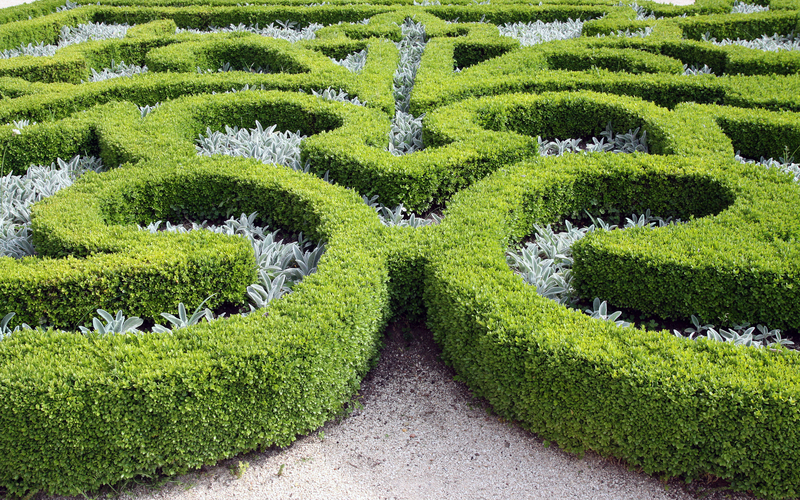Level Up Your Garden with These 3 Weed Control Tips
Posted on 27/05/2025
Level Up Your Garden with These 3 Weed Control Tips
Gardening is a rewarding hobby, but dealing with persistent weeds can turn your green oasis into a battlefield. Weed control is a vital task for every gardener, regardless of skill level. If you're searching for effective strategies to eliminate weeds, you're in the right place. This comprehensive guide will share three essential weed control tips to help you achieve a healthy, beautiful, and vibrant garden. Use these practical tips to take your garden to the next level--and keep it weed-free all season long!
Why Weed Control Matters in Your Garden
Weeds are more than an eyesore. They compete with your valuable plants for nutrients, sunlight, and water. Left unchecked, weeds can quickly overtake flower beds, lawns, and vegetable patches, stunting the growth of your desired plants and ruining your landscape's aesthetic appeal. Effective weed management not only preserves the health and beauty of your garden but also reduces maintenance time, allowing you to enjoy your outdoor space more.
If you're ready to level up your garden with weed control, read on for three tried-and-true methods that deliver lasting results.

1. Mulching--Nature's Barrier Against Weeds
One of the best weed control methods is mulching. Mulch acts as a powerful barrier, blocking sunlight and preventing weed seeds from germinating. Additionally, it retains soil moisture, regulates temperature, and enhances the overall appearance of your garden beds.
How to Use Mulch Effectively for Weed Suppression
- Choose the Right Mulch: Organic mulches, such as shredded bark, straw, wood chips, and compost, not only suppress weeds but also improve soil quality as they decompose. Inorganic mulches, like landscape fabric or gravel, are also effective in certain areas, especially pathways and around shrubs.
- Apply Sufficient Depth: For optimal weed control, apply mulch 2-4 inches thick. Too thin a layer allows sunlight to reach weed seeds, while too thick a layer can suffocate plant roots.
- Mulch Timing Matters: Apply mulch in late spring, after the soil has warmed and perennial weeds have been removed. Refresh mulch annually to maintain coverage.
- Don't Mulch Too Close: Keep mulch a few inches away from plant stems to prevent rot and discourage pests.
By following these tips, you can effectively control weeds with mulch and improve the health of your garden soil at the same time.
2. Manual Weed Removal--The Tried-and-True Approach
Sometimes, the simplest methods are the most effective weed solutions. Manual weed removal is a classic gardening task and remains a cornerstone of successful garden weed management. When done correctly, pulling weeds prevents them from setting seed and spreading throughout your garden.
Tips for Removing Weeds by Hand
- Weed Early and Often: Young weeds are easier to remove and haven't developed deep root systems. Hand-pull or hoe weeds while they're small to minimize effort.
- Moisten the Soil: Pulling weeds is much easier when the soil is moist after a rainfall or watering. Roots slip out cleanly, reducing regrowth.
- Remove the Entire Root: Grasp weeds at the base and gently pull, ensuring you get all roots, especially for persistent species like dandelions and thistles.
- Use the Right Tools: Invest in a quality hand weeder, hoe, or trowel for precision and to reach deep taproots without disturbing your plants.
- Dispose Responsibly: Don't leave pulled weeds on the soil--they can reroot or scatter seeds. Collect and compost non-seeding weeds, or dispose of aggressive, seeding weeds in the trash.
This hands-on approach is a crucial part of robust weed control in your garden. With patience and regular effort, you can significantly reduce unwanted growth and cultivate stronger, healthier plants.
3. Pre-emergent Weed Control--Stopping Weeds Before They Start
For gardeners seeking to prevent weeds before they ever appear, pre-emergent control is an invaluable tactic. Pre-emergent herbicides interrupt weed seed germination, meaning your efforts to maintain a weed-free garden can be more proactive than reactive.
Implementing Pre-emergent Strategies in Your Garden
- Understand Timing: Pre-emergent products are most effective when applied in early spring before weed seeds begin germinating. Mark your calendar and apply before anticipated weed growth periods.
- Choose the Right Product: Select a pre-emergent herbicide appropriate for your garden type--lawns, flower beds, or vegetable gardens. Organic alternatives like corn gluten meal also help prevent annual weeds in non-crop areas.
- Apply Evenly: For best results, spread pre-emergent evenly over the soil and water it in to activate.
- Avoid Disturbing Treated Areas: Minimize cultivating or digging after application, as this can break the protective barrier and allow weeds to germinate.
While pre-emergent weed control is not suitable for every planting area--especially where you're sowing seeds of desirable plants--it's an essential tool in minimizing weed issues in established gardens, lawns, and walkways.
Combine Strategies for Unbeatable Weed Control
The most effective weed prevention programs integrate multiple strategies. By combining mulching, manual weeding, and pre-emergent applications, you create multiple layers of defense. Over time, this approach minimizes overall weed pressure, supports plant health, and yields a garden you'll be proud to show off.
- Start with a clean slate--weed thoroughly before applying mulch or pre-emergents.
- Spot-check regularly for new growth and tackle weeds before they spread.
- Amend soil to support robust plant growth (healthy plants outcompete many weeds naturally).
Consistent garden maintenance, including a focused weed control routine, is the secret to gardening success.
Eco-Friendly and Natural Weed Control Alternatives
Concerned about using chemicals? There are plenty of organic and eco-friendly weed control methods to keep your garden healthy and safe for pollinators and kids. Consider these alternatives:
- Manual removal: Still one of the greenest and most effective options.
- Natural mulches: Straw, grass clippings, leaf mold, and bark chips smother weeds and feed the soil.
- Vinegar sprays: Household vinegar (acetic acid) can help kill young weeds--just avoid getting it on your wanted plants.
- Boiling water: Pour over weeds in driveways or between paving stones for instant plant-killing action.
- Corn gluten meal: Works as a natural pre-emergent for lawns and walkways.
These options, when combined with good gardening practices, are effective and eco-conscious solutions for practical weed management.
Common Weeds and How to Identify Them
Successful garden weed control starts with correct weed identification. Some of the most notorious offenders include:
- Dandelion: Recognized for its bright yellow flowers and deep tap roots.
- Crabgrass: A grassy weed often found invading lawns and edges.
- Clover: A low-growing weed with trifoliate leaves and white or pink flowers.
- Bindweed: Twining vines with arrow-shaped leaves, known for choking out other plants.
- Chickweed: Small, spreading plant with tiny white flowers.
Identifying your garden's weed intruders helps you choose the most effective removal technique. Certain species require specific attention due to their aggressive growth habits or resilient root systems.

When to Seek Professional Weed Control Help
While most gardeners can handle mild to moderate weed issues, large-scale invasions or persistent perennial weeds, such as Japanese knotweed or horsetail, may require professional assistance. Professional weed control services have access to specialized tools and herbicides, as well as expert knowledge to restore balance to your landscape.
If you find yourself losing the battle against invasive weeds, don't hesitate to contact a local garden specialist for advice or intervention.
Final Thoughts: Take Action and Transform Your Garden
Don't let weeds steal the spotlight from your beautiful plants! With these three expert weed control tips--mulching, hand removal, and pre-emergent barriers--you're well-equipped to maintain a lush, healthy, and thriving garden all year long. Pair these strategies with eco-friendly methods as needed, stay vigilant against new weed growth, and remember to celebrate your gardening victories--big and small.
Are you ready to level up your garden with weed control? Start implementing these proven techniques today and watch your landscape flourish!
Further Reading & Resources
- Royal Horticultural Society - Weeds: elimination and control
- University of Minnesota Extension: Home Weed Management
- Gardener's Supply Company - Weed Control
Remember: Consistency, patience, and a multi-pronged approach are the keys to winning the war on garden weeds. Happy gardening!
Latest Posts
Innovative Methods to Deal with Wind-Filled Gardens
Safeguard Your Garden from Nature's Threats
Unlock the Secrets to Budget-Friendly, Low Maintenance Gardening

